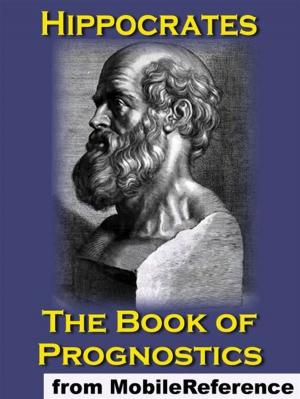Agricola And Germania: Translation Based On Alfred John Church And William Jackson Brodribb (1876) (Mobi Classics)
Nonfiction, History, Ancient History, Rome, European General, Fiction & Literature, Classics| Author: | Cornelius Tacitus | ISBN: | 9781607784395 |
| Publisher: | MobileReference | Publication: | January 1, 2010 |
| Imprint: | MobileReference | Language: | English |
| Author: | Cornelius Tacitus |
| ISBN: | 9781607784395 |
| Publisher: | MobileReference |
| Publication: | January 1, 2010 |
| Imprint: | MobileReference |
| Language: | English |
The Germania (Latin: De Origine et situ Germanorum, lit. The Origin and Situation of the Germans), written by Gaius Cornelius Tacitus around 98, is an ethnographic work on the Germanic tribes outside the Roman Empire.This work survived only in one single manuscript that was found in Hersfeld Abbey, Holy Roman Empire and brought to Italy in 1455 where Enea Silvio Piccolomini, the later Pope Pius II, first examined and analyzed it, whereby he sparked interest among German humanists such as Conrad Celtes, Johannes Aventinus, and especially Ulrich von Hutten into the Germania as an authentic source on ancient Germany. Ever since then, treatment of the text regarding the culture of the early Germanic peoples in ancient Germany remains strong especially in German history, philology, and ethnology studies, and to a lesser degree in Scandinavian countries as well.The Agricola (Latin: De vita et moribus Iulii Agricolae, lit. About the life and character of Julius Agricola) is a book by the Roman historian Tacitus, written c 98, which recounts the life of his father-in-law Gnaeus Julius Agricola, an eminent Roman general. It also covers, briefly, the geography and ethnography of ancient Britain. As in the Germania, Tacitus favorably contrasts the liberty of the native Britons to the corruption and tyranny of the Empire; the book also contains eloquent and vicious polemics against the rapacity and greed of Rome. Excerpted from Wikipedia, the free encyclopedia. TABLE OF CONTENTS:Agricola (ca. 98), Translation based on Alfred John Church and William Jackson BrodribbGermania, or The Origin and Situation of the Germans, Translation based on Alfred John Church and William Jackson BrodribbGermania, or The Origin and Situation of the Germans, Translated by Thomas GordonCornelius Tacitus Biography
The Germania (Latin: De Origine et situ Germanorum, lit. The Origin and Situation of the Germans), written by Gaius Cornelius Tacitus around 98, is an ethnographic work on the Germanic tribes outside the Roman Empire.This work survived only in one single manuscript that was found in Hersfeld Abbey, Holy Roman Empire and brought to Italy in 1455 where Enea Silvio Piccolomini, the later Pope Pius II, first examined and analyzed it, whereby he sparked interest among German humanists such as Conrad Celtes, Johannes Aventinus, and especially Ulrich von Hutten into the Germania as an authentic source on ancient Germany. Ever since then, treatment of the text regarding the culture of the early Germanic peoples in ancient Germany remains strong especially in German history, philology, and ethnology studies, and to a lesser degree in Scandinavian countries as well.The Agricola (Latin: De vita et moribus Iulii Agricolae, lit. About the life and character of Julius Agricola) is a book by the Roman historian Tacitus, written c 98, which recounts the life of his father-in-law Gnaeus Julius Agricola, an eminent Roman general. It also covers, briefly, the geography and ethnography of ancient Britain. As in the Germania, Tacitus favorably contrasts the liberty of the native Britons to the corruption and tyranny of the Empire; the book also contains eloquent and vicious polemics against the rapacity and greed of Rome. Excerpted from Wikipedia, the free encyclopedia. TABLE OF CONTENTS:Agricola (ca. 98), Translation based on Alfred John Church and William Jackson BrodribbGermania, or The Origin and Situation of the Germans, Translation based on Alfred John Church and William Jackson BrodribbGermania, or The Origin and Situation of the Germans, Translated by Thomas GordonCornelius Tacitus Biography















